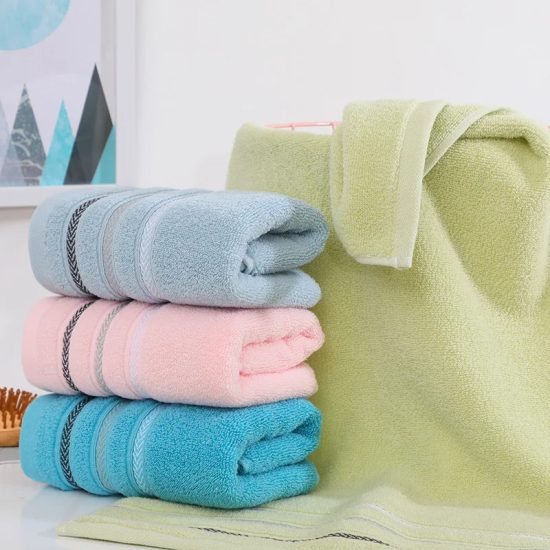In an era where environmental consciousness is paramount, the world of bath towels has undergone a significant shift towards sustainability. From materials to production processes, eco-friendly options and practices are now at the forefront of the bath towel industry. Let’s explore how you can embrace sustainability in your choice of bath towels.
Eco-Friendly Material Choices
Choosing towels made from sustainable materials is a fundamental step towards a greener bathroom:
- Organic Cotton: Towels crafted from organic cotton are grown without harmful pesticides or chemicals, promoting healthier soil and reducing environmental impact. They offer the same comfort and absorbency as conventional cotton but in a more sustainable manner.
- Bamboo Fiber Blends: Bamboo towels are derived from a highly renewable resource that grows rapidly without the need for pesticides or excessive water. They possess natural antimicrobial properties, making them an eco-friendly and hypoallergenic choice.
- Recycled Materials: Towel manufacturers are increasingly using recycled materials, such as plastic bottles or post-consumer textile waste, to create towels, reducing landfill waste and conserving resources.
Low-Impact Production Processes
Sustainable bath towels also focus on environmentally friendly production practices:
- Water Conservation: Towel manufacturers are implementing water-saving measures in production, such as recycling water and adopting more efficient dyeing techniques, to reduce water consumption during manufacturing.
- Energy Efficiency: Embracing renewable energy sources and energy-efficient machinery in production facilities helps minimize the carbon footprint associated with towel manufacturing.
- Reduced Chemical Usage: Eco-friendly towels are produced using fewer chemicals and dyes, ensuring a safer and healthier option for both consumers and the environment.
Practices for Sustainable Use
Optimizing the lifespan of your bath towels while minimizing their environmental impact involves adopting sustainable practices:
- Proper Care and Maintenance: Follow care instructions to ensure longevity, reducing the frequency of replacement. Washing towels in cold water and air-drying when possible can conserve energy.
- Repurposing Old Towels: Instead of discarding old towels, repurpose them as cleaning rags or donate them to animal shelters, extending their usefulness and reducing waste.
- Investing in Quality: High-quality, durable towels tend to last longer, reducing the frequency of replacements and contributing to a more sustainable lifestyle.
In Conclusion
Sustainability in bath towels goes beyond material choices; it encompasses the entire lifecycle of the product, from production to usage and disposal. By selecting eco-friendly materials, supporting low-impact production practices, and adopting sustainable usage habits, you can contribute to a more environmentally conscious bathroom routine.
Every choice towards sustainable bath towels makes a difference in reducing the ecological footprint, preserving natural resources, and fostering a greener future. Embrace these eco-friendly options and practices to not only elevate your bathing experience but also contribute positively to the planet.


